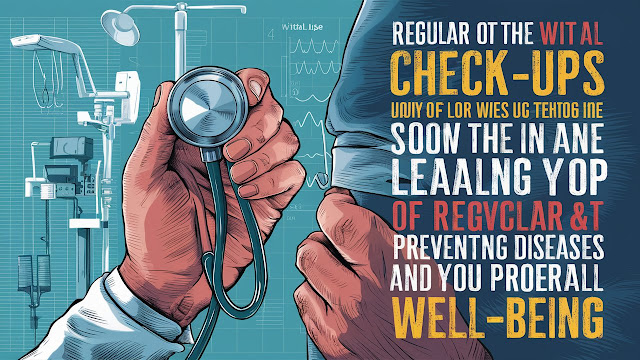The Importance of Regular Medical Check-ups for Optimal Health
Understanding the Significance of Medical Check-ups
Regular medical check-ups are an essential component of preventive healthcare, playing a crucial role in maintaining overall well-being and early detection of potential health issues. While many individuals may only visit their healthcare provider when they are experiencing symptoms or illnesses, scheduling routine check-ups, even when feeling well, can provide numerous benefits for long-term health and disease prevention. This article explores the importance of regular medical check-ups and how they contribute to optimal health.
Early Detection of Health Conditions
One of the primary advantages of regular medical check-ups is the early detection of health conditions. During a check-up, healthcare professionals conduct various screenings, tests, and assessments to evaluate different aspects of health, including blood pressure, cholesterol levels, blood sugar levels, and body mass index (BMI). By detecting abnormalities or risk factors at an early stage, individuals can take proactive measures to address potential health issues before they escalate into more serious conditions.
Prevention and Disease Management
In addition to early detection, regular medical check-ups enable healthcare providers to provide personalized preventive care and disease management strategies based on an individual's health status, lifestyle factors, and medical history. This may include recommendations for vaccinations, screenings for specific diseases or conditions, counseling on healthy lifestyle behaviors such as diet and exercise, and management of chronic conditions such as diabetes, hypertension, or asthma. By implementing preventive measures and proactive management strategies, individuals can reduce their risk of developing chronic diseases and optimize their overall health outcomes.
Monitoring Health Trends Over Time
Routine medical check-ups also allow for the monitoring of health trends and changes over time. By establishing a baseline of health markers during initial check-ups, healthcare providers can track changes in these parameters during subsequent visits and identify any deviations from the norm. This longitudinal approach to healthcare enables early identification of emerging health issues, assessment of the effectiveness of treatment or lifestyle interventions, and adjustment of management plans as needed to optimize health outcomes.
Promoting Patient-Provider Communication
Regular medical check-ups provide an opportunity for open and honest communication between patients and healthcare providers. During these visits, individuals can discuss any concerns, symptoms, or changes in health status with their provider, allowing for timely evaluation and appropriate management. Furthermore, establishing a trusting and collaborative relationship with a healthcare provider facilitates continuity of care, encourages adherence to treatment plans, and empowers individuals to actively participate in decisions regarding their health and well-being.
Facilitating Health Education and Empowerment
Another important aspect of regular medical check-ups is health education and empowerment. Healthcare providers use these visits as opportunities to educate patients about preventive health measures, healthy lifestyle behaviors, and risk factors for various diseases. By empowering individuals with knowledge and information, they can make informed decisions about their health, take proactive steps to reduce risk factors, and adopt behaviors that promote overall well-being. Additionally, healthcare providers can address any misconceptions or questions that patients may have, fostering a sense of empowerment and autonomy in managing their health.
Conclusion
In conclusion, regular medical check-ups are essential for maintaining optimal health and well-being throughout life. By facilitating early detection of health conditions, providing personalized preventive care and disease management strategies, monitoring health trends over time, promoting patient-provider communication, and facilitating health education and empowerment, routine check-ups play a critical role in preventive healthcare. It is imperative for individuals to prioritize their health by scheduling regular check-ups with a healthcare provider, even in the absence of symptoms, to proactively manage their health and reduce the risk of developing chronic diseases. Embrace the importance of preventive care and take proactive steps towards a healthier, happier, and more fulfilling life.





No comments:
Post a Comment